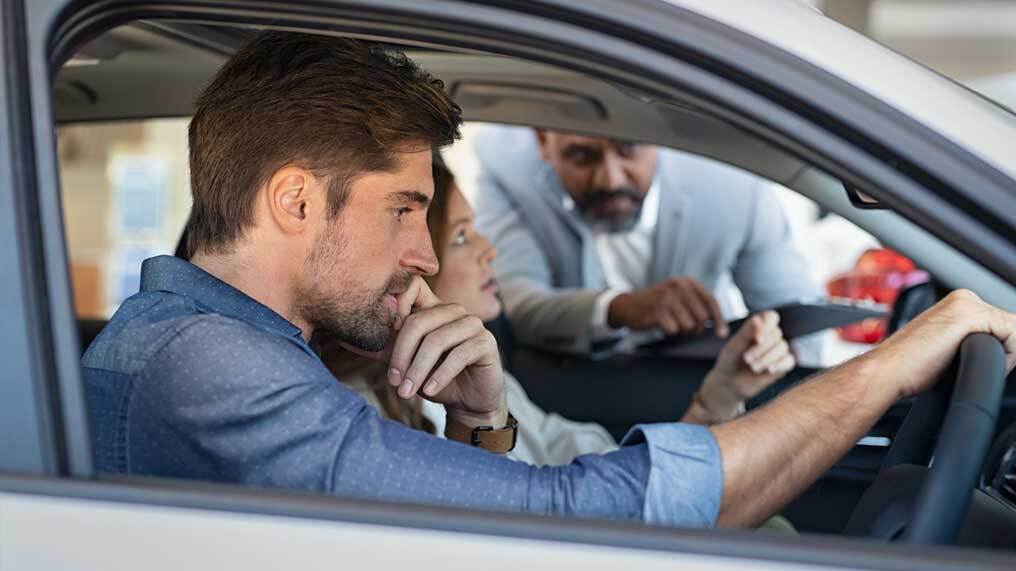If you can afford it, why not treat yourself to a new car? It makes sense doesn't it? It's tempting to buy something shiny and trouble-free. Plus you won't have to get it MOT'd for a good couple of years.
But then again, a quality used car could save you money. If it's been looked after properly it's a no-brainer, right? But there's always the risk it will break down and cost you more in the long run...
So what are the pros and cons of going for that irresistible new car smell or taking a chance with something second-hand which may have the aroma of a wet dog?
Pros of buying a new car
You can get exactly what you want
Sounds obvious, but if you are fussy about colour combinations and specifications then new really is the only way to go. Online search engines are so good now that you may be able to find a used car that is surprisingly close to what you want, for less. But will it have exactly what you're looking for?
Peace of mind
At the very least, most manufacturers will offer a three-year warranty for all parts, but you still need to check the small print carefully as the final year can be a less comprehensive dealer-backed scheme.
However, it’s possible to get warranty cover for a used car from a dealer, or direct from an independent warranty company. Yet again you need to read the small print, and some cars over a certain age and mileage cannot be covered.
You want to do the right thing
This is a double-edged one. While some new cars pollute less than older cars, a lot of energy and natural resources go into building a new car. One thing is true though, the better you are at looking after your car, the more efficient it will be; so whether you go old or new, stay on top of maintenance!
Pros of buying a used car
Beat depreciation
The simple truth is that as soon as you drive out of the showroom your new car will have lost a significant chunk of its value, including the VAT and new car registration tax.
By contrast, a three to five-year-old car will depreciate by a smaller amount, and some cars may shed hardly any more value at all. However, keeping your new car longer, say a decade, certainly reduces losses.
Also choosing the ‘right' specification and model can mean that your depreciation curve is less steep, because a car has a strong image and an economical engine.
Cheaper to run
You'll feel less obliged to visit a dealer workshop with an older car. Rather than paying the high labour rates of main agents, you can save a good percentage by using a local independent garage. Some older cars are also much simpler, so fixing them should be less complicated and cheaper, plus you might be inclined to use salvaged or second hand parts.
Not doing much driving
If all you need is a set of wheels to get you to the station and back, or to the supermarket for the weekly shop, there's no point in taking out a loan to buy a new car. By contrast, if you regularly cover more than 20,000 miles a year and need utter reliability and state-of-the-art safety features, buy new.
Whatever you decide, make sure you have valid car insurance!




